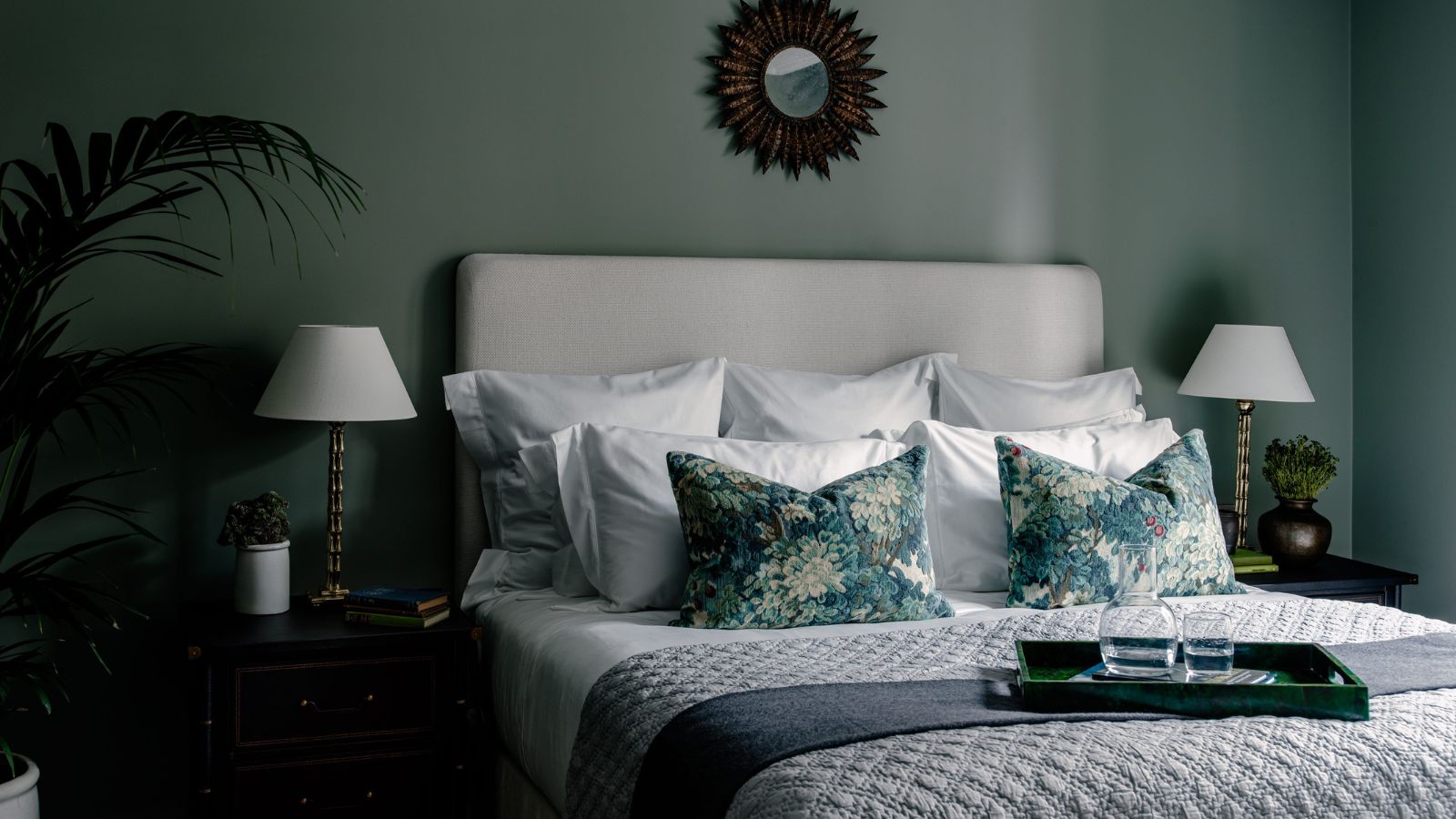
With increasing stress levels in every aspect of our lives, from environmental to monetary concerns, many of us may be finding it tricker to sleep.
A survey of 1,200 Americans by the U.S. News and World Report* shows that over half of respondents experienced insomnia in 2023 – so how can we prioritize sleeping better in the New Year to improve our wellness?
Sleep and bedding experts have shared the five ways you can improve your bed and bedroom to make sleep simpler in 2024, from the best bedding to making a bedroom smell nice for sleep.
5 ways to prioritize sleep in the New Year
Whether you are looking to fix your sleep schedule or learn to fall asleep fast, there are plenty of adjustments you can make to improve your bedroom
1. Use the right mattress

'While the best mattress may not take away from some of our stress, it is the best starting point for improving your sleep,' says Button & Sprung’s co-founder Adam Black:
‘People have different requirements based on their size, shape, weight, sleeping positions, and so on – it’s impossible to approach mattress buying with a one-size-fits-all mindset which is why it’s important to think about your needs before your purchase.
‘A good quality mattress should gently support the whole body and provide postural alignment by keeping the spine in a neutral position,’ he explains. For this reason, it is important to go and test out a mattress before you invest or ensure that you pick a delivered mattress that offers a long trial period to help your body adjust.
If you can’t switch out your mattress just yet, then consider picking up a good mattress topper to help tailor your existing bedding to your needs in the meantime.

This is a luxury mattress with none of the usual costs. It's the best value bed you can get, according to our reviewers.

This popular mattress proved great for back pain, offering a high-quality bed at a very fair price
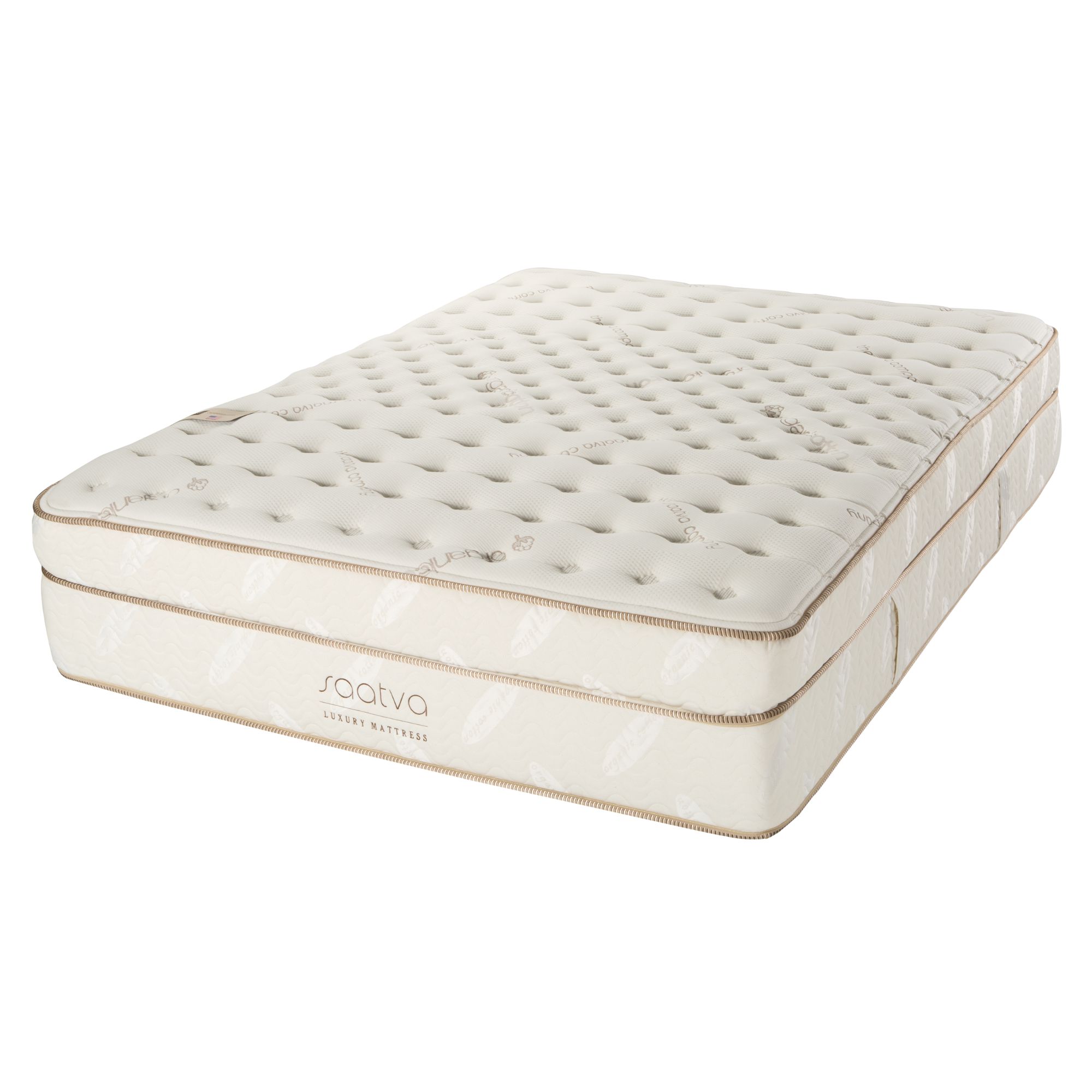
The Saatva Classic mattress is our favorite mattress. This luxury hybrid mattress will suit everyone: a great night guaranteed, and at a fair price.
2. Supplement support with the best pillows and duvet
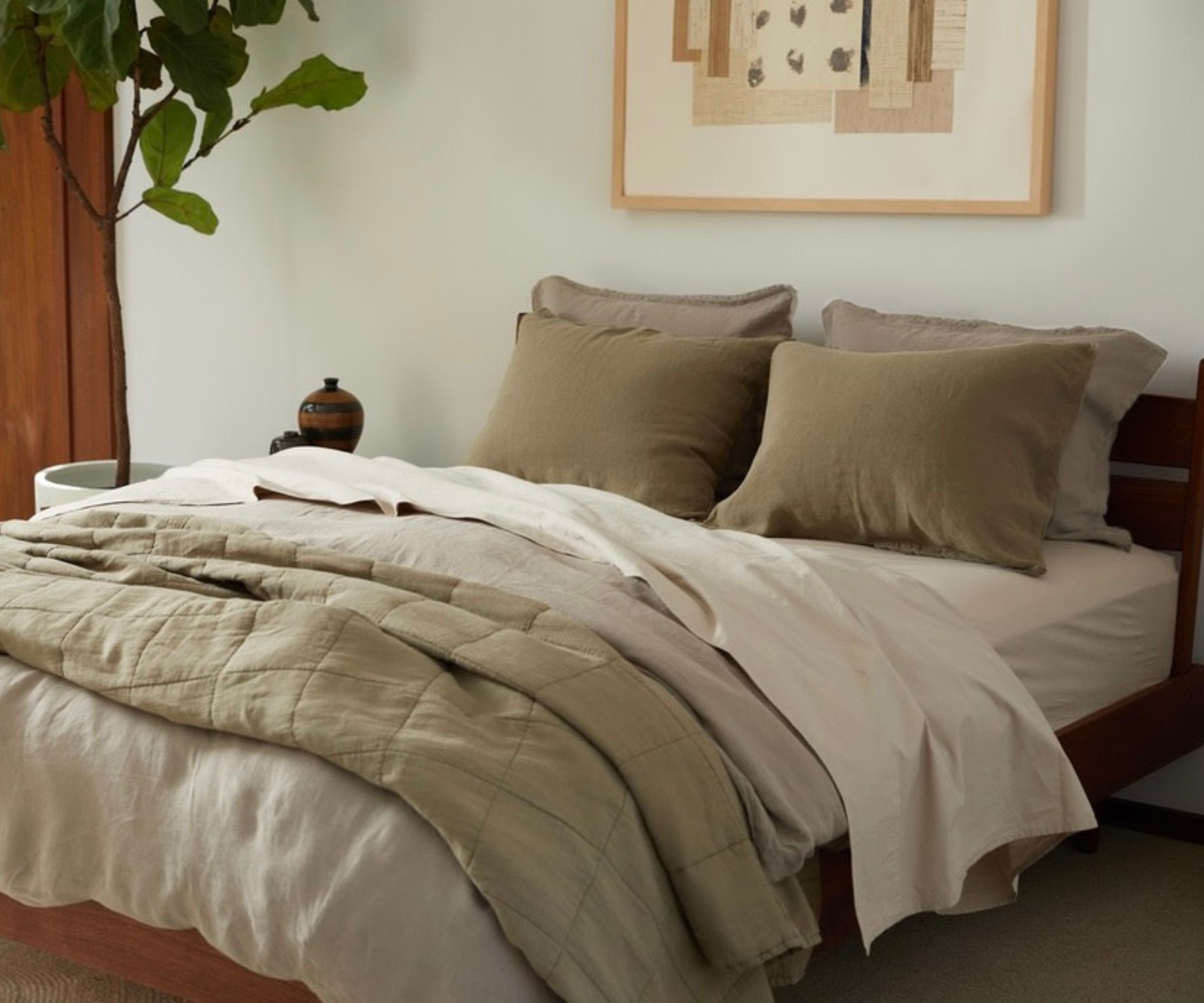
It is not just your mattress that needs to be supportive of your new sleeping goals, but your pillows and duvet too, continues sleep expert Greg Potter PhD from The Fine Bedding Company. 'When choosing the best pillow, it is important to select an option that allows you to maintain a ‘neutral spine’. This is the position of your neck when standing tall,’ Greg explains.
‘If you’re a side sleeper, you may need a slightly thicker pillow to help you to maintain your position. If you’re a back or front sleeper, opt for a softer or memory foam pillow that can mold to your neck and head.’
Your duvet or comforter may not support your body, but it does regulate your temperature, helping you to sleep more comfortably, Greg continues. ‘I'd advise having a different duvet for winter and summer,’ he says. ‘Lower Tog duvets are best for spring and summer, while higher Tog duvets will keep you cozy during the colder nights.’
3. Remove bedtime distractions
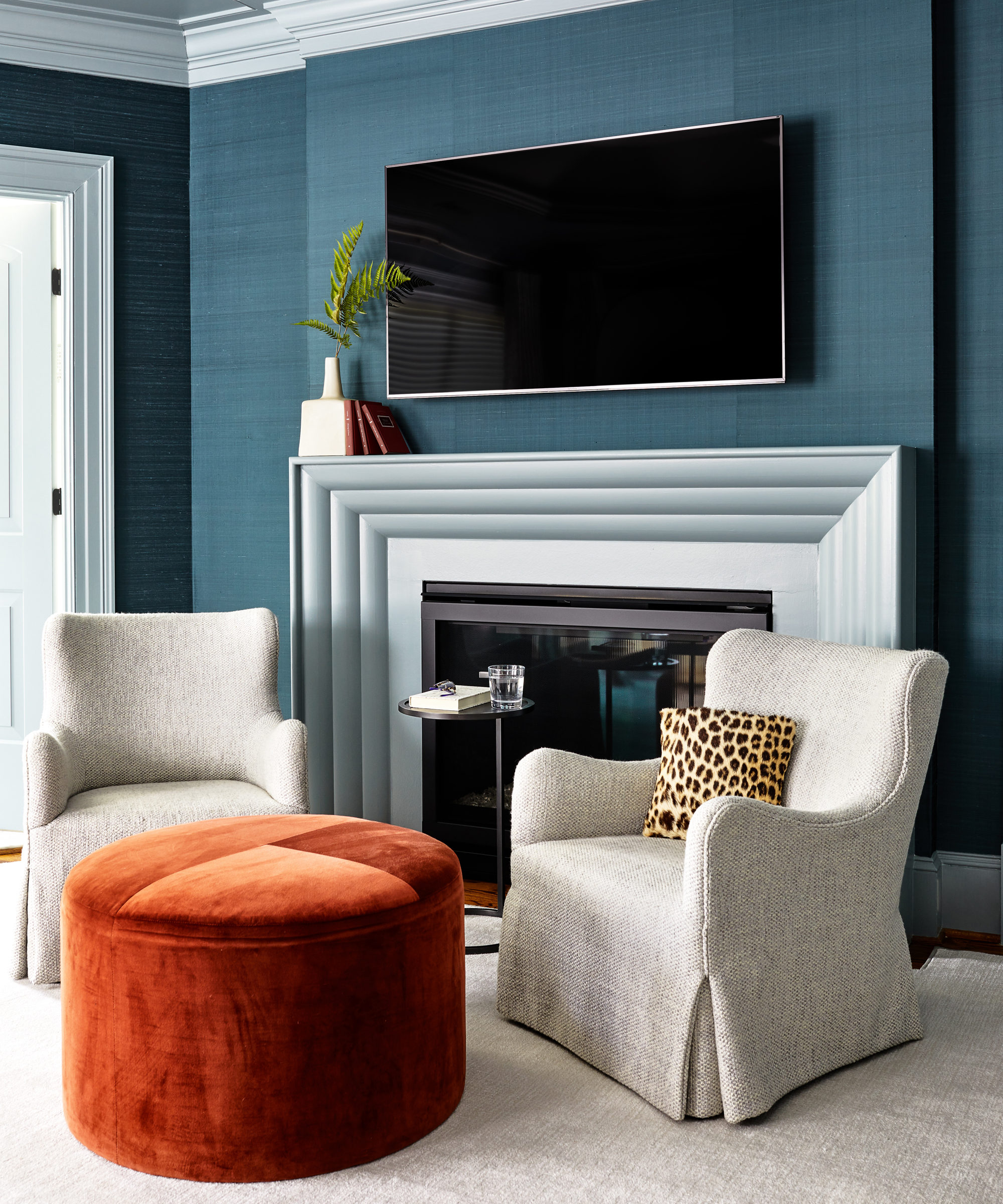
If you have been struggling to sleep, removing any distractions from your space is a must. While we may hate to hear it, this means removing our phones and TVs from our sleep spaces.
Gillian Gudgeon, APDO member and Founder of Restore the Calm explains that getting rid of this tech not only frees up space but allows us to be more mindful when in the bedroom. ‘The science is compelling,’ she says. ‘It disrupts your sleep cycle, over-stimulates your mind, doesn’t foster intimacy, and televisions can bring along pain caused by poor posture when watching.’
Try to cut out blue light for at least one hour before sleep. This could mean swapping scrolling for reading, or even settling into a cozy corner to partake in a manual hobby such as a craft before heading up to bed for the night to help destress.
4. Choose a calming palette
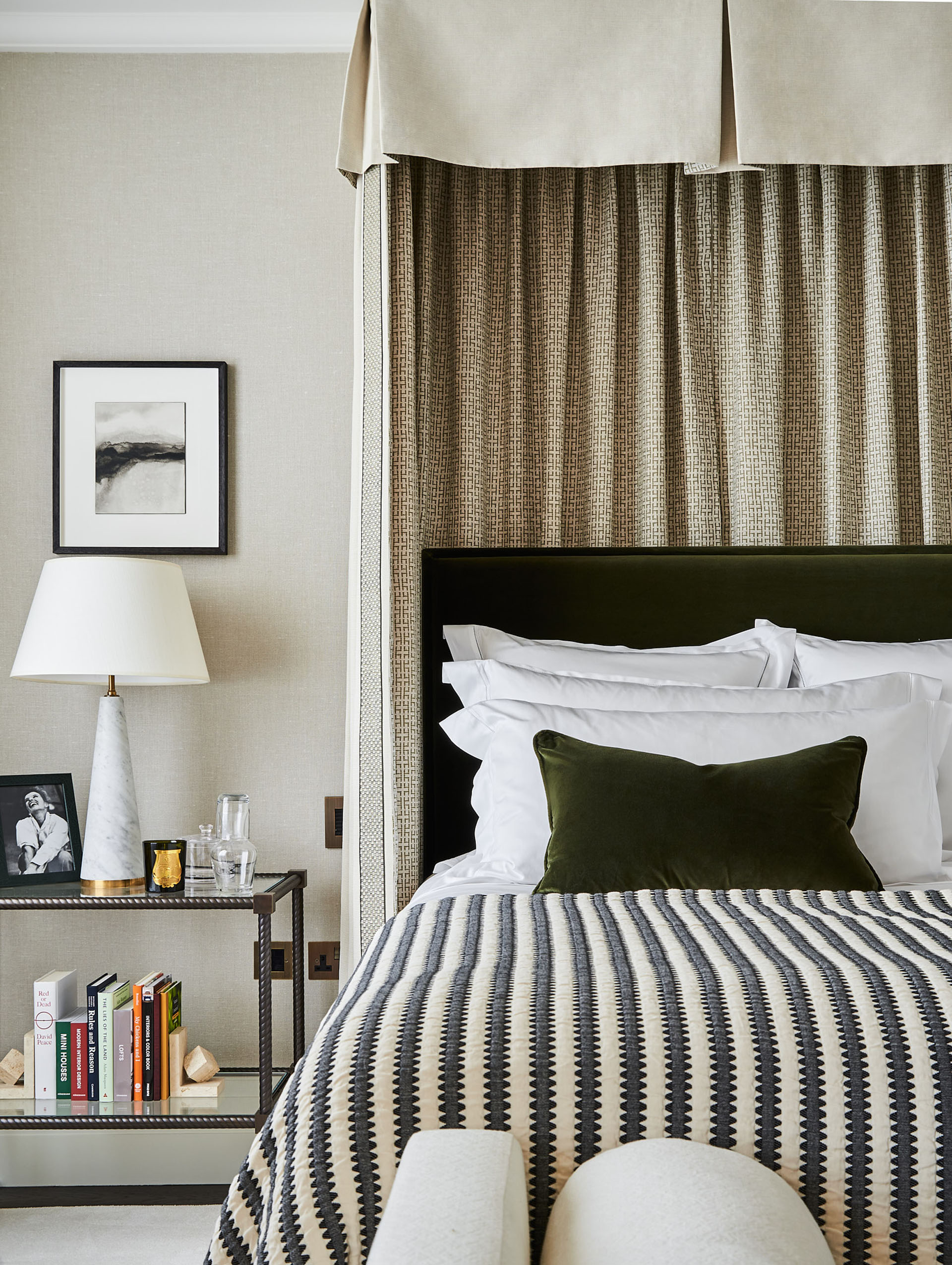
It is not just your tech that can be a distraction in your bedroom, but your choice of decor too, Camilla Clarke, creative director at Albion Nord, continues. It is best to pick the most relaxing colors to make a bedroom cozy and promote better rest:
‘For bedrooms, avoid bold, elaborate patterns and prints. Instead, opt for a variety of luxuriously textured natural materials such as wools, linens, and silks to help create interest, warmth, and comfort,’ Camilla recommends. ‘Your bedroom should be the ultimate sanctuary space. We fully embrace cool and calming colors, particularly soft blues and deep olive greens. Pairing these shades with warm lighting creates a feeling of calmness and serenity.’
5. Make your bedroom smell relaxing to promote sleep
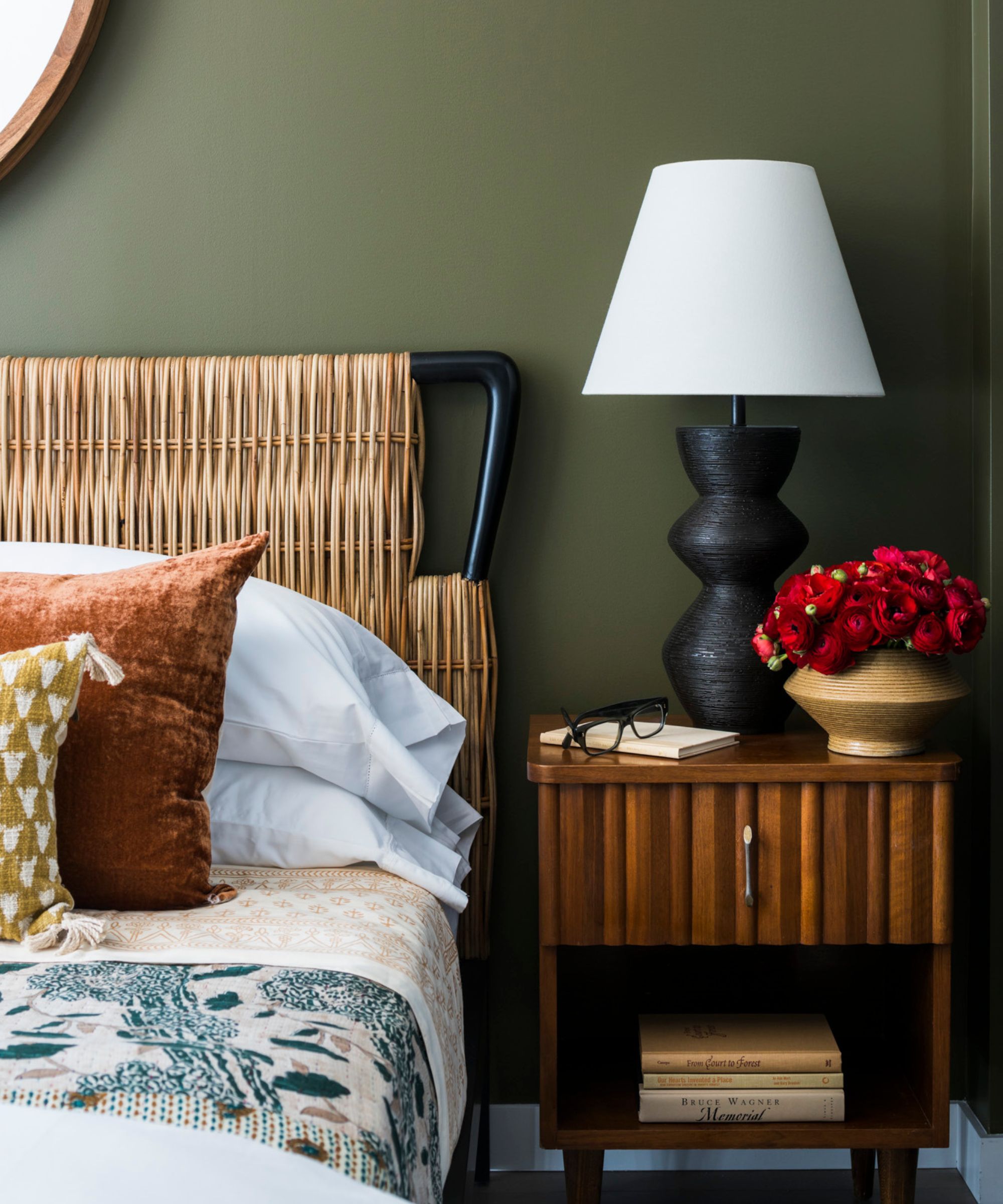
We are likely all aware by now that a lavender pillow spray can help you sleep, but have you considered making your whole room sleep nice for sleep and relaxation?
Christina Heiser, in-house sleep expert at Saatva, the Smarter Luxury Sleep Company, explains that fragrance layering can contribute to the perfect sleep environment, helping to lull you off and keep you asleep until your alarm in the morning:
‘It's no surprise that chamomile essential oil is a popular choice for promoting sleep, given the calming effects of chamomile tea. A study published in the Journal of Aromatherapy examined the impact of Roman chamomile on mood and alertness. The results showed that participants who inhaled chamomile became more relaxed and drowsy.’
There are plenty of other things people with nice-smelling bedrooms do too, such as cleaning a bedroom regularly to improve sleep hygiene and minimize the effect of allergies on good sleep.
FAQs
Why do I still feel tired after 8 hours of sleep?
There are several reasons why you still feel tired after eight hours of sleep, such as not having restful sleep (i.e. waking up throughout the night or tossing and turning), sleep debt meaning you are still tired from previous nights of poor sleep, and medical conditions that leave you feeling fatigued – ranging from serious conditions such as sleep apnea to easier-to-rectify issues such as vitamin deficiencies.
Should I go back to bed if I still feel tired?
If you wake up still tired, then it is okay to hit snooze on occasion when you have the time. However, it is best to address why you are waking up feeling tired and set a more efficient sleep schedule to help prevent feelings of fatigue and an endless cycle of using the snooze button.
Is there a way to make waking up easier?
When prioritizing your sleep, you may put more emphasis on nailing your bedtime routine for the best night’s sleep than your morning schedule. However Georgia Metcalfe, founder of French Bedroom, suggests that you shouldn’t end your perfect sleep routine with your alarm going off:
‘Turn off the alarm and pop on a cozy bedside lamp whilst you take time to adjust to your surroundings in the comfort of your warm luxury bed linen. Use this silence to roll and stretch whilst you settle into a breathing pattern and prepare your body to carry you throughout your day,’ she recommends.
Psychotherapist Bal Pardesi at Evolve Hypnotherapy also suggests that ‘a bit of meditation before you face the day will leave you grounded and ready to face the challenges ahead,’ helping you to feel better rested.
*U.S. News & World Report Sleep Habits, Preferences Consumer Survey 2023







